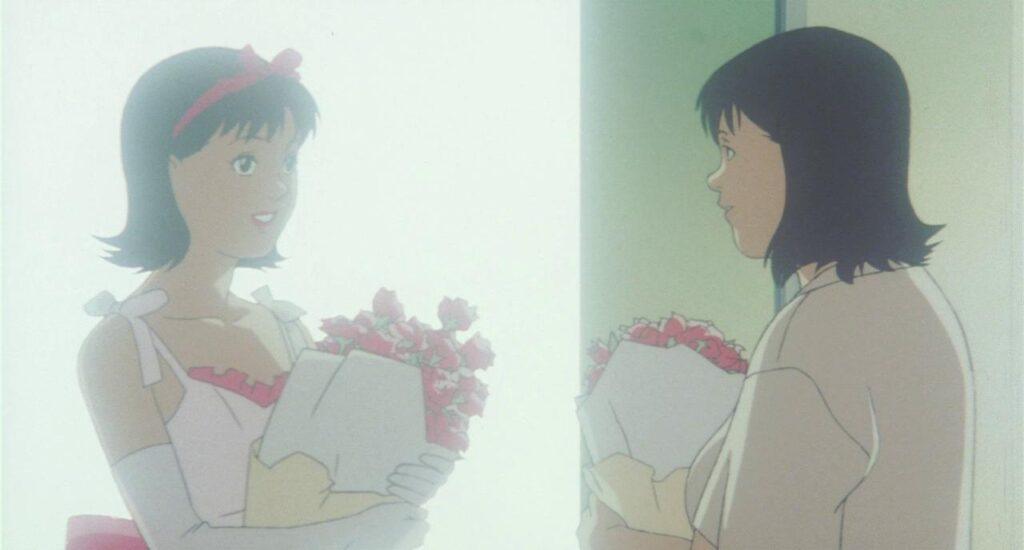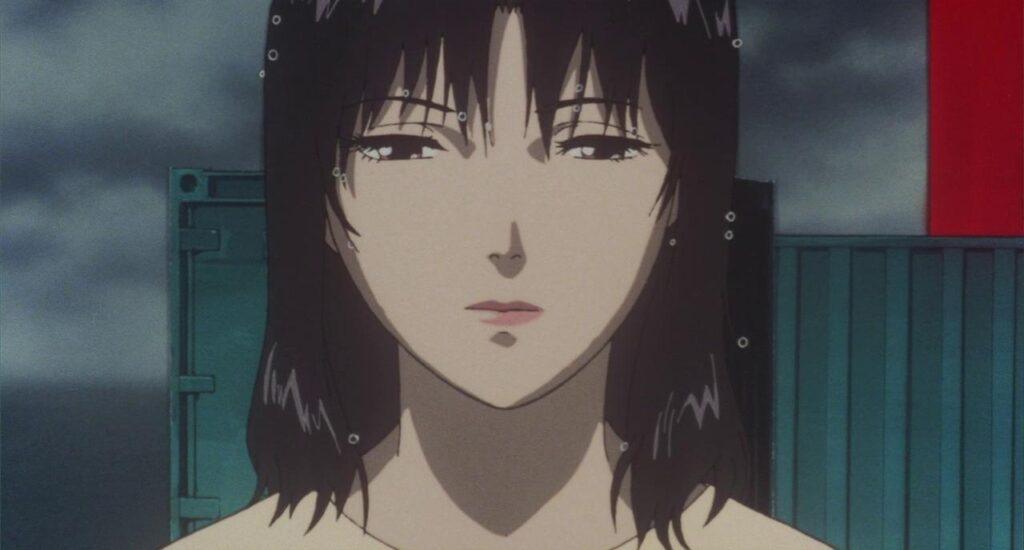
Reflections of a Fragmented Mind
Satoshi Kon’s Perfect Blue is a haunting study of fame, identity, and mental collapse — and at the heart of this psychological disintegration is the film’s most potent visual shorthand: mirrors.
Perfect Blue’s mirrors aren’t just reflecting surfaces — they symbolize the broken self of Mima Kirigoe and her gradual disconnection from reality. Through expertly placed reflections and distortions in mirrors, the movie gets across visually what words never did: a self that is shattering under stress of performance and perception.
Double Identity: Mima vs. “Idol Mima”
Ever since she leaves her pop idol group CHAM! behind and changes profession to acting, she begins bifurcating — psychologically as well as aesthetically. Mima continuously finds herself grabbing peeks of a mirror image of her bygone self — in her sugarcoated idol finery, bright smile on face, condemning her decisions for most of the movie.
This double self in the spectrum is frequently viewed in reflective surfaces — mirrors, windows, even computer monitors. It’s no coincidence. The mirror is a war zone of identity:
Who is the true Mima?
Is she the pop singer worshipped by the masses?
Or the up-and-coming starwoman exploring dark material?
That conflict drives her psychological collapse, and the mirror is a symbolically charged ground where that interior conflict is reenacted.
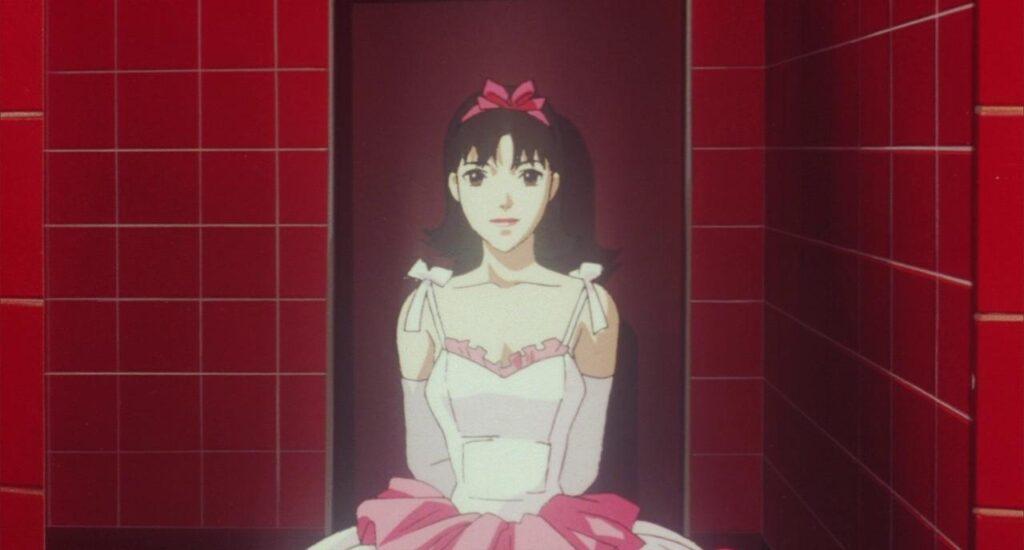
Mirrors as a Tool of Psychological Horror
Kon masterfully uses mirror imagery to blur the line between reality and delusion. In several key scenes:
Mima’s reflection moves independently of her real body.
The camera will show her face hidden, only revealing her identity through a mirror — or showing the “idol” version instead.
Reflections are sometimes misaligned or distorted, a subtle cue that what we’re seeing may not be real.
These choices mystify the viewer as much as they mystify Mima. We’re trapped in her perspective, with no choice but to question whether what we’re witnessing is real or fantasy.
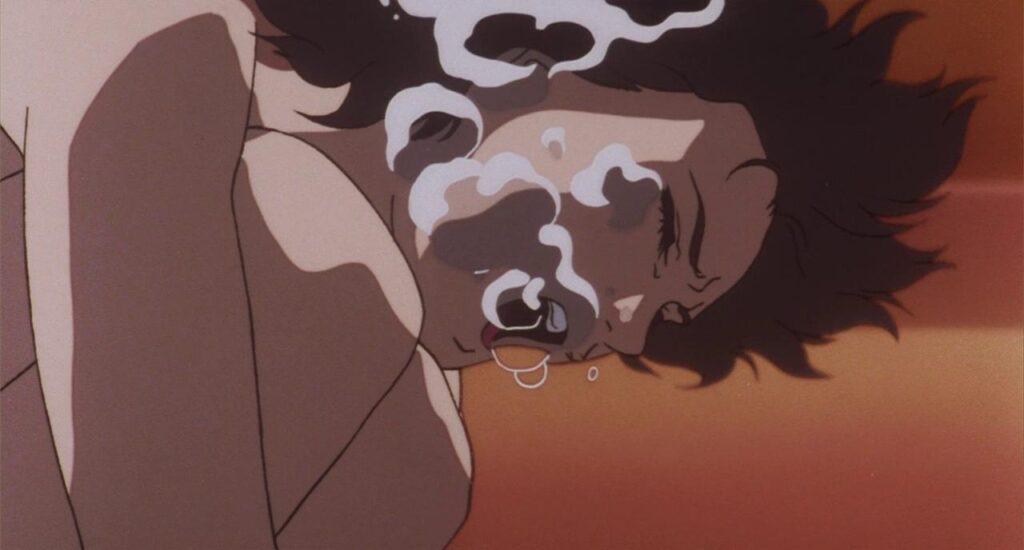
The Mirror and the Madness
The film’s climax confirms the mirror theme: as Mima attacks Rumi — who has taken on the idol role — we see Rumi hallucinating herself as real Mima. In a frightening twist, her reflections continue to be the young, gleaming idol, even as her body staggers, bleeding and disheveled.
This indicates to us that Rumi, too, is a victim of shattered identity — and mirrors do not simply reflect, they lie, deflecting idealized reflections of ourselves which no longer (or ever) exist.
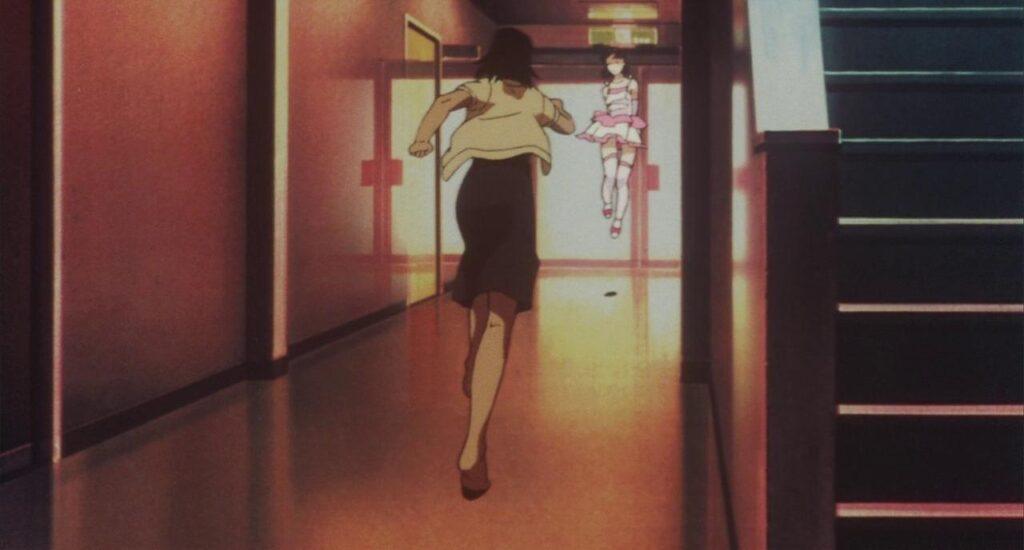
Final Thoughts: Reflections of the Self
Mirrors in Perfect Blue are never objective. They are psychological doorways, distorting identity, increasing anxiety, and ultimately revealing the innermost fears of those who look into them.
For Mima, the mirror is not just reflecting her face — it’s reflecting expectation, trauma, and the erosion of her identity.

